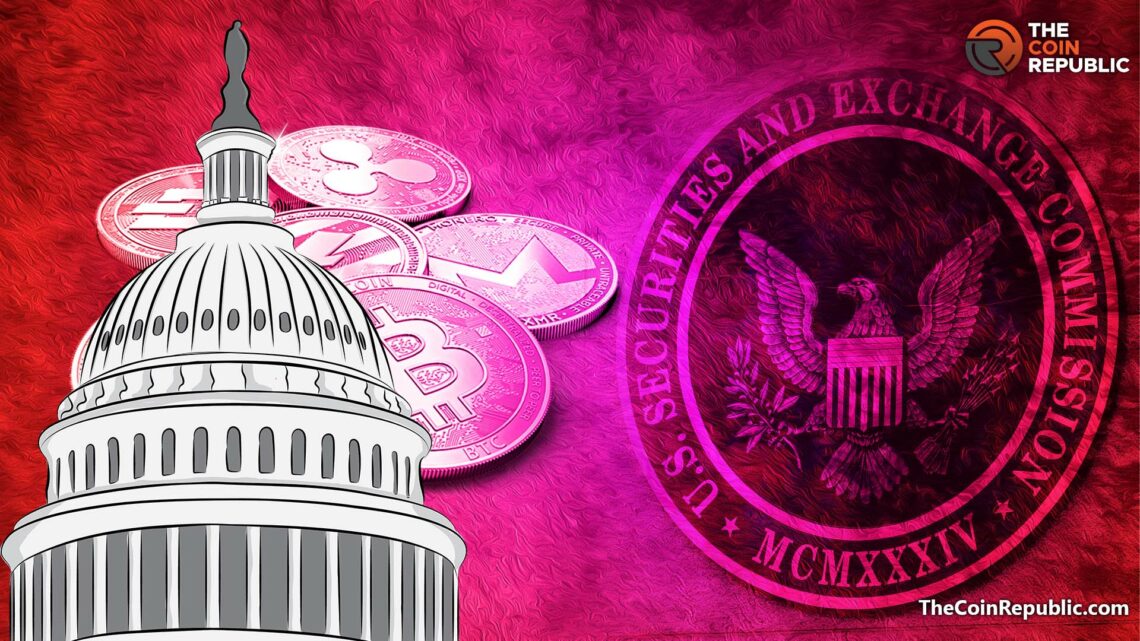- SAB 121 requires financial institutions and crypto companies to include customers of crypto assets in risk calculation.
- People think this might add difficulties to the process.
Cryptocurrencies are complicated because their decentralized nature makes it difficult to be regulated by a centralized authority. All stakeholders trying to find common ground with regards to crypto regulations, including crypto companies, investors, lawmakers and regulators. The SEC released a bulletin concerning digital assets, and Republicans are pushing against it.
"In sum, the effect of SAB 121 is to deny millions of Americans access to safe and secure custodial arrangements for digital assets."
— Senator Cynthia Lummis (@SenLummis) March 2, 2023
⬇️⬇️ My letter with @PatrickMcHenry here:https://t.co/kEQKJMg4tC
Republicans, are not liking the new bulletin, as it affects banks and financial institutions over how they account for digital assets. The Chair of the House Financial Services Committee, Patrick McHenry, R-N.C., along with Senator Cynthia Lummis, R-Wyo., is the team working on the legislation on crypto. The Thursday letter to the SEC, referring to their concerns regarding the Staff Accounting Bulletin, aka SAB 121.
What is SAB 121?
The issue is with how crypto platforms calculate risks. Generally, they do not include the customer’s crypto assets in calculating the risk they face. SAB 121 requires them to include customer assets in the risk analysis.
In March 2022, the SEC’s Office of the Chief Accountant issued SAB 121. This was also the first time these digital asset platforms received instructions on altering their accounting procedure to accommodate unstable cryptocurrencies’ value.
The SEC has issued only three such bulletins since 2019. Staff members outlined their views on how companies can and should handle their accounting procedures better. Gary Gensler supported SAB 121 in August 2022, citing it as a standard part of SEC operations.
Will SAB 121 work?
Both Lummis and McHenry are concerned about the risk it could create for consumers and a rise in compliance costs for various financial institutions. Since its issuance, the financial watchdog has been receiving resistance from crypto companies and banks.
SAB 121 allows banks, financial institutions and credit unions to include digital assets in their balance sheets. If applied, a huge capital charge can be expected, which customers might not like.
Recent high-profile failures, like Celsius and FTX, have accentuated the need for regulations. Many suffered with their assets either gone in the wind or frozen until the platforms filed for bankruptcies.
McHenry & Lummis wrote that customers were tagged as unsecured creditors during Celsius’ bankruptcy, placing them last for asset recovery. This highlighted the need to effectively force customer custodial assets to be included in their balance sheets. Essentially customers will be treated like investors if the company files for bankruptcy.
SEC’s stand on Cryptocurrency
The SEC is considered to be a leading authority in regulating digital assets. The main challenge before the financial watchdog is to classify cryptocurrencies as securities. Chairman Gary Gensler strongly believes they should be treated as securities.
How the SEC regulates cryptocurrencies can impact customers and companies in the US and worldwide. Some companies in the states grew too big too fast, while some in the industry leaned on lobbying their cause.

Andrew is a blockchain developer who developed his interest in cryptocurrencies while pursuing his post-graduation major in blockchain development. He is a keen observer of details and shares his passion for writing, along with coding. His backend knowledge about blockchain helps him give a unique perspective to his writing skills, and a reliable craft at explaining the concepts such as blockchain programming, languages and token minting. He also frequently shares technical details and performance indicators of ICOs and IDOs.


 Home
Home News
News






